The Sermon
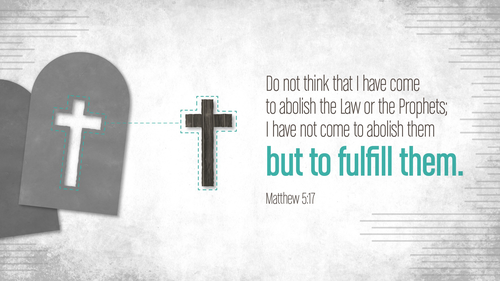
“Seeing the crowds, he went up on the mountain, and when he sat down, his disciples came to him. And he opened his mouth and taught them, saying: “Blessed are the poor in spirit, for theirs is the kingdom of heaven. “Blessed are those who mourn, for they shall be comforted. “Blessed are the meek, for they shall inherit the earth. “Blessed are those who hunger and thirst for righteousness, for they shall be satisfied. “Blessed are the merciful, for they shall receive mercy. “Blessed are the pure in heart, for they shall see God. “Blessed are the peacemakers, for they shall be called sons of God. “Blessed are those who are persecuted for righteousness’ sake, for theirs is the kingdom of heaven. “Blessed are you when others revile you and persecute you and utter all kinds of evil against you falsely on my account. Rejoice and be glad, for your reward is great in heaven, for so they persecuted the prophets who were before you. “You are the salt of the earth, but if salt has lost its taste, how shall its saltiness be restored? It is no longer good for anything except to be thrown out and trampled under people’s feet. “You are the light of the world. A city set on a hill cannot be hidden. Nor do people light a lamp and put it under a basket, but on a stand, and it gives light to all in the house. In the same way, let your light shine before others, so that they may see your good works and give glory to your Father who is in heaven. “Do not think that I have come to abolish the Law or the Prophets; I have not come to abolish them but to fulfill them. For truly, I say to you, until heaven and earth pass away, not an iota, not a dot, will pass from the Law until all is accomplished. Therefore whoever relaxes one of the least of these commandments and teaches others to do the same will be called least in the kingdom of heaven, but whoever does them and teaches them will be called great in the kingdom of heaven. For I tell you, unless your righteousness exceeds that of the scribes and Pharisees, you will never enter the kingdom of heaven. “You have heard that it was said to those of old, ‘You shall not murder; and whoever murders will be liable to judgment.’ But I say to you that everyone who is angry with his brother will be liable to judgment; whoever insults his brother will be liable to the council; and whoever says, ‘You fool!’ will be liable to the hell of fire. So if you are offering your gift at the altar and there remember that your brother has something against you, leave your gift there before the altar and go. First be reconciled to your brother, and then come and offer your gift. Come to terms quickly with your accuser while you are going with him to court, lest your accuser hand you over to the judge, and the judge to the guard, and you be put in prison. Truly, I say to you, you will never get out until you have paid the last penny. “You have heard that it was said, ‘You shall not commit adultery.’ But I say to you that everyone who looks at a woman with lustful intent has already committed adultery with her in his heart. If your right eye causes you to sin, tear it out and throw it away. For it is better that you lose one of your members than that your whole body be thrown into hell. And if your right hand causes you to sin, cut it off and throw it away. For it is better that you lose one of your members than that your whole body go into hell.” (Matthew 5:1–30, ESV)
Disciples
Miracles made Jesus popular. But Jesus wanted disciples, not crowds, so he called a few men to himself. The crowds did not always follow him for the right reasons. Many were curious, needed healing, or wanted to see miracles. But Jesus never intended to heal all the sick in Israel; he came to raise up true disciples. So Jesus called his disciples to himself, sat down, and began to teach them (5:1–2). The crowds were free to listen in (7:28), but the Sermon on the Mount was given primarily to Jesus' disciples.
In this inaugural address of his kingdom, the King presents how his kingdom is identified and how his rule is administered. It also prescribes how those who belong to the King are to live. Jesus explains the just demands of the law but dismisses the legalism of the Pharisees. He is outlining the rule of God for this new community. The requirements of the law were much more than the people understood because the demands of the law were humanly impossible to observe and left us with no hope outside of grace.
In this inaugural address of his kingdom, the King presents how his kingdom is identified and how his rule is administered. It also prescribes how those who belong to the King are to live. Jesus explains the just demands of the law but dismisses the legalism of the Pharisees. He is outlining the rule of God for this new community. The requirements of the law were much more than the people understood because the demands of the law were humanly impossible to observe and left us with no hope outside of grace.
Beatitudes
In Jesus' kingdom, those considered blessed include the poor in spirit, mourners, humble, righteous, merciful, pure, peacemakers, and the persecuted. These are general categories of people that were considered disregarded, despised, and mostly ignored. These countercultural values suggest that the kingdom described by Jesus is quite different from standard expectations.
Some translations use the word happy instead of blessed, which poses a danger of making life about one's feelings. The world says, "I just want you to be happy." Jesus says that real happiness—blessedness comes from mature character. Life is not promised to be easy in the kingdom, and Jesus' subjects may experience the pain of rejection and loss. However, when you belong to the King, you are transformed, and people recognize kingdom behaviors and glorify the King who makes it possible. Our lives should be filled with good works, which are the evidence that we belong to the King, who is worthy of all glory.
Some translations use the word happy instead of blessed, which poses a danger of making life about one's feelings. The world says, "I just want you to be happy." Jesus says that real happiness—blessedness comes from mature character. Life is not promised to be easy in the kingdom, and Jesus' subjects may experience the pain of rejection and loss. However, when you belong to the King, you are transformed, and people recognize kingdom behaviors and glorify the King who makes it possible. Our lives should be filled with good works, which are the evidence that we belong to the King, who is worthy of all glory.
The Law
Jesus is preserving, continuing, and fulfilling what God had previously revealed by the Law and the Prophets. He will magnify the law in both its precepts and its penalty. That does not mean that everything would stay the same. Jesus made some things obsolete, such as sacrifices and ceremonies. Jesus came to bring perfect righteousness. Until Jesus, everything had only been a shadow of things to come.
When Jesus says, "But I say to you," he is not setting himself over against Moses or the law; he wants people to understand their depravity and need. The Sermon on the Mount can be as discouraging as it is appealing. No amount of knowledge or good deeds can save anyone, which is why he explains that the law's demands are more than even what the Pharisees taught. Kingdom life and membership are much more than external conformity to a religious set of standards.
We may be the light of the world, but we still fail to meet God's standards. Jesus says that anyone angry with his brother is subject to judgment (5:22). Anyone who looks at a woman lustfully has committed adultery in his heart (5:28–29). Anyone who receives a slap on the cheek from an evil person must "turn to him the other also" (5:39). The demands rise to a crescendo when Jesus says, "Love your enemies and pray for those who persecute you" (5:44), and, "Be perfect, therefore, as your heavenly Father is perfect" (5:48).
When Jesus says, "But I say to you," he is not setting himself over against Moses or the law; he wants people to understand their depravity and need. The Sermon on the Mount can be as discouraging as it is appealing. No amount of knowledge or good deeds can save anyone, which is why he explains that the law's demands are more than even what the Pharisees taught. Kingdom life and membership are much more than external conformity to a religious set of standards.
We may be the light of the world, but we still fail to meet God's standards. Jesus says that anyone angry with his brother is subject to judgment (5:22). Anyone who looks at a woman lustfully has committed adultery in his heart (5:28–29). Anyone who receives a slap on the cheek from an evil person must "turn to him the other also" (5:39). The demands rise to a crescendo when Jesus says, "Love your enemies and pray for those who persecute you" (5:44), and, "Be perfect, therefore, as your heavenly Father is perfect" (5:48).
Grace
By pointing out our sin and inability, the sermon leads us to the cross of Christ, where we find the grace that forgives our sins. The poor in spirit know that we cannot behave as we should, that we cannot deliver ourselves from our weaknesses or sins. It is God's design that we should aspire to a character that is ever more like the character of Jesus.
Jesus blesses all those who know their need for grace. By grace, God sent his Son. By grace, Jesus came to seek and save the lost. By grace, he atoned for our sins. By grace, the Father raised Jesus from the grave and sent the Spirit to testify to him. By grace, God completes his work by changing our hearts so that we love him more and more. We listen to and strive to obey Jesus, not to gain entry into the kingdom but to live faithfully within it.
Jesus blesses all those who know their need for grace. By grace, God sent his Son. By grace, Jesus came to seek and save the lost. By grace, he atoned for our sins. By grace, the Father raised Jesus from the grave and sent the Spirit to testify to him. By grace, God completes his work by changing our hearts so that we love him more and more. We listen to and strive to obey Jesus, not to gain entry into the kingdom but to live faithfully within it.
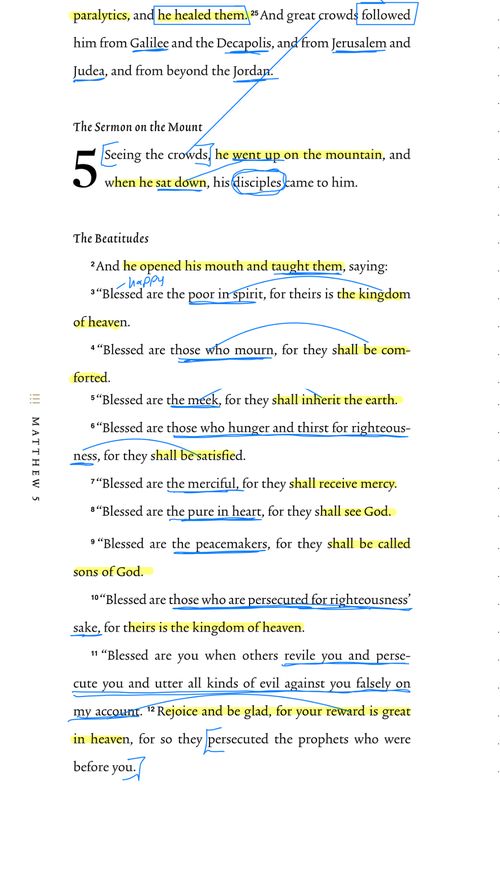
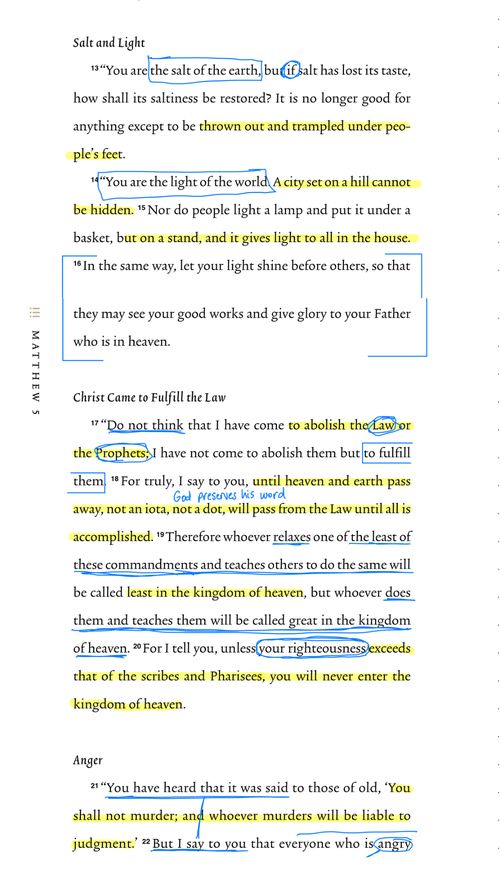
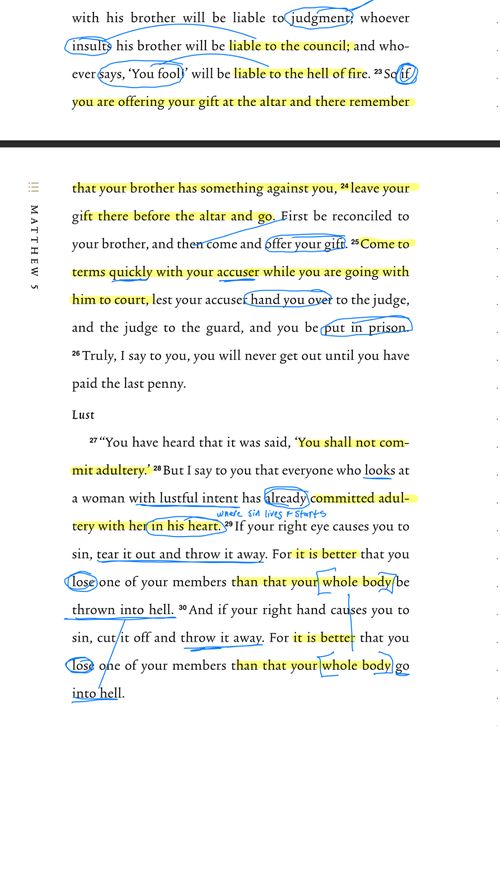

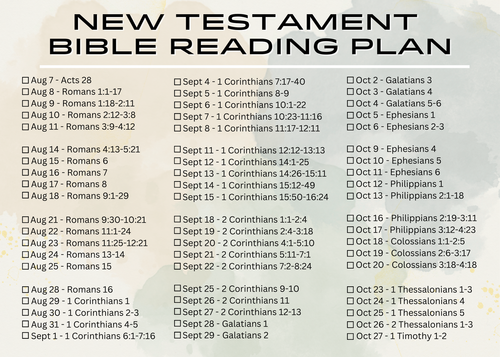
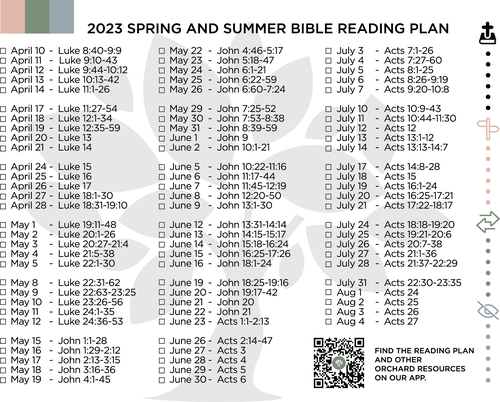
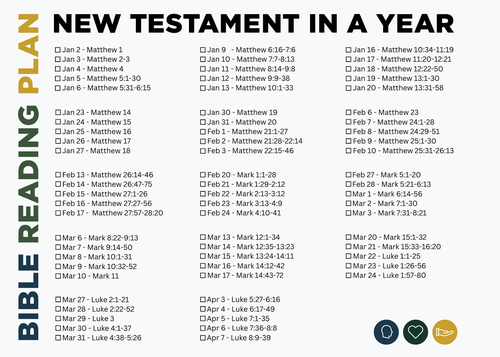
Recent
Archive
2023
January
Happy New Year!He Will Save His People From Their SinsMy Beloved SonTemptation And MinistryThe SermonLeaving, Lying, Limits, Love, Largesse, and The Lord's PrayerTreasure, Anxiety, and JudgmentAstonishing AuthorityStorms, Demons, and HealingJesus Is CompassionateHis Eye Is On The SparrowSwords, Rewards, and MessengersThe Lord of the SabbathBlasphemy, Bad Trees, Signs, and FamilyStories, Sowers, and SoilsParables, Hidden Treasure, and RejectionFame, Food, Fear, Faith, and FringeReal Issues And The Power Of GodDying To Find LifeLike The SunChildren, Temptation, Sheep, And ForgivenessMarriage, Kids, And MoneyTo Serve And Give His Life
February
The ArrivalStories That StingQuestion TrapsHidden Motives And LamentThe End...?UnexpectedReady?Punishment, The Plot, And PerfumeTreachery, Passover, and The CupBetrayal, Injustice, And DenialThe Field Of Blood And The GovernorCrucifixion And DeathAll AuthorityMark—The Beginning Of The GospelHealing, Preaching, And The Forgiveness Of SinEating With Tax Collectors, Fasting, The Sabbath, And An Escape BoatThe Twelve, Blasphemy, Family, And A ParableParables And PowerA Different Kind Of StormPower Had Gone Out
March
Death, Hunger, And MiraclesCommandment Or TraditionDo You Not Yet Understand?The Christ And A Glimpse Of His GloryUnbelief, Confusion, And SinDivorce, Children, And PossessionsTo Give His Life As A RansomHosannaThe Rejected Stone, Taxes, And The Great CommandmentDestruction And The EndNo One Knows, An Anointing, And A Promise To BetrayPassover And GethsemaneThe Kiss, Arrest, And DenialPilate, Simon, And The CrucifixionDeath, Burial, Resurrection, And What\'s NextTheophilus And A Visit From GabrielMary And The MagnificatBenedictusThe Arrival And The ShepherdsSimeon, Anna, And The SpiritFruits Keeping With Repentance And BaptismThe Wilderness, Nazareth, And CapernaumSimon's Mother-In-Law, Fishing, A Leper, And Sins
April
Tax Collectors, Fasting, Sabbath Controversies, And The TwelveWhy Do You Call Me Lord, Lord?Jesus Marveled, A Raised Son, And QuestionsA Sinful Woman And A ParableObeying The Word, A Storm, And DemonsTwelve Years, Twelve Apostles, And SpeculationGreater, Costly, And GloryNot Getting It, The Cost, And AppointedWoes, Neighbors, And What Is NecessaryHelp Us Pray And A Divided Kingdom?Signs, Lights, And WoesHypocrisy, Fear, A Fool, And AnxietyParables, Division, And The TimesWarnings, A Daughter Of Abraham, And Jerusalem, JerusalemA Son Or An Ox, Parties, And DiscipleshipLost ThingsThe Dishonest Manager, The Law, And Anguish In This FlameMillstones And Mustard SeedsPersistent Prayer, Humility, A Childlike Faith, And The Rich RulerEverything That Is Written, A Blind Beggar, And A Wee Little Man
May
A Parable, A Colt, A Prophecy, And A CleansingAuthority, Wicked Tenants, And TaxesThings To Beware Of And WidowsDestruction, Persecution, The Son Of Man, And WatchingThe Plot, Betrayal, Lord's Supper, And Inappropriate BehaviorPrediction, Fulfillment, Agony, Betrayal, And DenialMistreated, Taken Before The Council, Pilate, Herod, And Delivered To Be CrucifiedCrucifixion, Death, And BurialHe Is Not HereDisbelieved For JoyIn The Beginning…The Lamb Of God And A WeddingZeal, What's Inside, And Born AgainHe Must Increase
Categories
no categories
Tags
no tags
